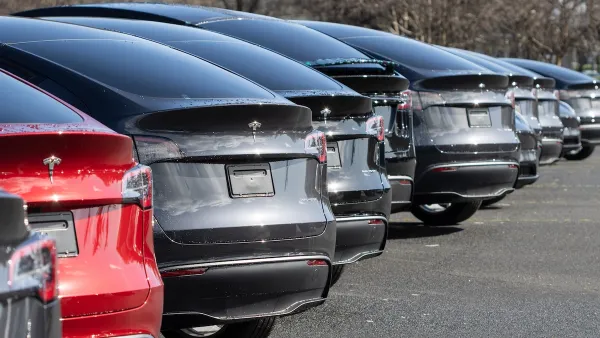Since the 1990s, Maryland has been at the forefront of Smart Growth planning at the statewide level. However, a new study shows that the state's incentive-based approach may not be adequate for inducing the changes envisioned by planners.
"A new study of the Washington, D.C., metro area, set for publication in Urban Studies, found that Maryland counties often spurn the state's smart growth incentives, instead pursuing their own preferred type of development," reports Eric Jaffe. "Despite the contentious nature of legal planning mandates, in many cases they would be more effective."
By comparing the recent growth of several Maryland counties with similar ones in Virginia (where no statewide smart growth plan is in place), report author Amal K. Ali of Salisbury University found mixed results. "Maryland counties lost less farmland than Virginia counties did, but on other measures of sprawl, such as density, the Maryland counties didn't perform so well."
"Simply put, when it comes to development, local desires often render state smart growth incentives insufficient, Ali concluded in her paper."
FULL STORY: Why We Shouldn't Rely on Smart Growth Incentives to Fix Sprawl

Planetizen Federal Action Tracker
A weekly monitor of how Trump’s orders and actions are impacting planners and planning in America.

Chicago’s Ghost Rails
Just beneath the surface of the modern city lie the remnants of its expansive early 20th-century streetcar system.

San Antonio and Austin are Fusing Into one Massive Megaregion
The region spanning the two central Texas cities is growing fast, posing challenges for local infrastructure and water supplies.

Since Zion's Shuttles Went Electric “The Smog is Gone”
Visitors to Zion National Park can enjoy the canyon via the nation’s first fully electric park shuttle system.

Trump Distributing DOT Safety Funds at 1/10 Rate of Biden
Funds for Safe Streets and other transportation safety and equity programs are being held up by administrative reviews and conflicts with the Trump administration’s priorities.

German Cities Subsidize Taxis for Women Amid Wave of Violence
Free or low-cost taxi rides can help women navigate cities more safely, but critics say the programs don't address the root causes of violence against women.
Urban Design for Planners 1: Software Tools
This six-course series explores essential urban design concepts using open source software and equips planners with the tools they need to participate fully in the urban design process.
Planning for Universal Design
Learn the tools for implementing Universal Design in planning regulations.
planning NEXT
Appalachian Highlands Housing Partners
Mpact (founded as Rail~Volution)
City of Camden Redevelopment Agency
City of Astoria
City of Portland
City of Laramie




























